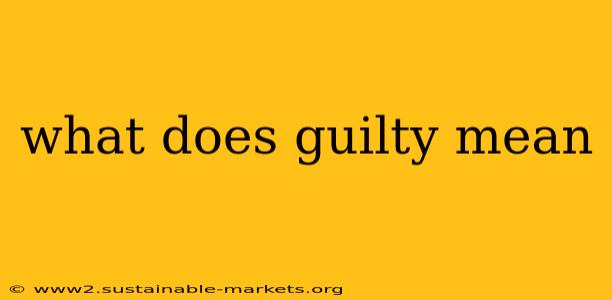Guilt is a complex emotion that plays a significant role in our social and moral development. Understanding what it truly means goes beyond a simple definition; it involves exploring its nuances, differentiating it from similar emotions like shame, and recognizing its impact on our behavior and relationships.
Defining Guilt: More Than Just a Feeling
At its core, guilt is a feeling of responsibility or remorse for an action that violates one's own moral standards or those of society. It's a self-directed emotion, focusing on the act itself and its consequences. You feel guilty because you believe you've done something wrong, and that wrong impacts yourself or others negatively.
Think of it this way: You accidentally break your friend's favorite vase. You feel guilty because you caused damage to something valuable to them, and you violated an unspoken rule of respecting their belongings. The focus is on your action – breaking the vase – and the resulting negative consequence.
Key Characteristics of Guilt:
- Self-directed: Guilt is primarily about your own actions and their impact.
- Focus on the act: It centers on the specific behavior, not your inherent worth.
- Motivates reparation: Guilt often pushes individuals to make amends, apologize, or take steps to rectify the situation.
- Can be adaptive: Healthy guilt can help us learn from mistakes and build stronger relationships.
Guilt vs. Shame: Understanding the Difference
Guilt is often confused with shame, but they are distinct emotions with different implications. While guilt focuses on a specific action, shame is a more pervasive feeling of self-worthlessness. It's a judgment of your entire self, not just a particular behavior.
For example, if you lied to your friend, you might feel guilty about the lie itself. However, you might feel shame if you believe that the lie reflects poorly on your character as a whole, making you feel fundamentally flawed. Shame leads to self-criticism and can be significantly more damaging to self-esteem.
The Role of Morality and Social Norms
Our understanding of guilt is deeply rooted in our moral compass and the social norms we've internalized. What one person considers a guilty act, another might not. Cultural differences, personal values, and religious beliefs all shape our individual experiences of guilt. This means that the intensity and nature of guilt can vary greatly from person to person and across different contexts.
Is Guilt Always Healthy?
While healthy guilt can be a positive force for self-improvement and social harmony, excessive or chronic guilt can be detrimental. It can lead to:
- Anxiety and depression: Constantly dwelling on past mistakes can overwhelm you emotionally.
- Low self-esteem: Persistent feelings of guilt can erode your sense of self-worth.
- Relationship problems: Excessive guilt can make it difficult to communicate openly and honestly with others.
- Avoidance behaviors: You might avoid situations or relationships that trigger feelings of guilt.
Managing and Addressing Guilt
If you are struggling with overwhelming guilt, consider these strategies:
- Self-compassion: Treat yourself with kindness and understanding, recognizing that everyone makes mistakes.
- Focus on reparation: If possible, take steps to repair the harm you've caused.
- Forgive yourself: Accepting responsibility for your actions is crucial, but dwelling on them endlessly isn't helpful.
- Seek professional help: A therapist can provide guidance and support in managing unhealthy guilt.
Understanding what guilt means requires recognizing its multifaceted nature. By differentiating it from shame, understanding its relationship to morality, and recognizing both its adaptive and maladaptive aspects, we can navigate this complex emotion more effectively and lead more fulfilling lives.

